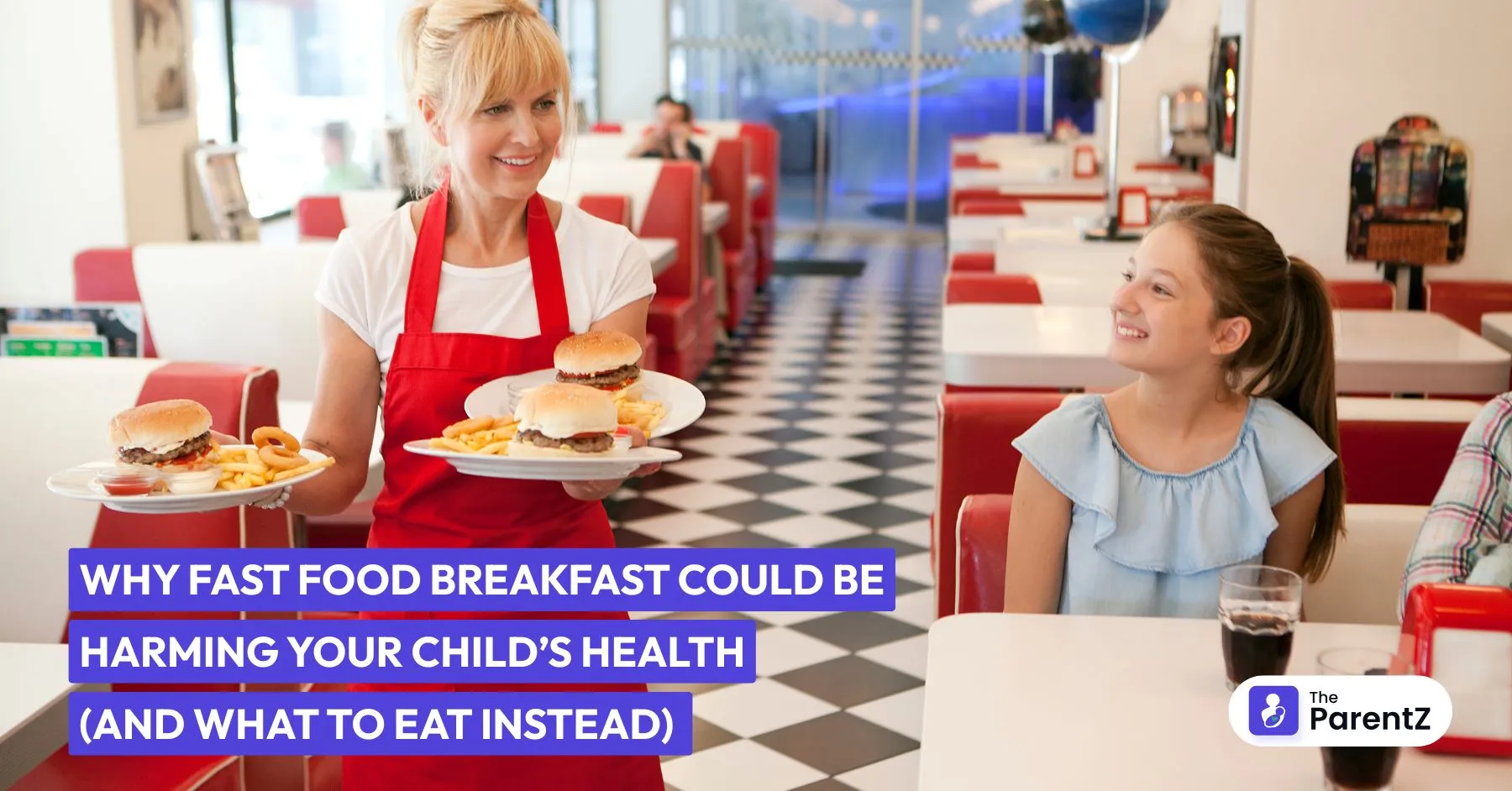The Breakfast Shortcut That Could Backfire
It’s early. You’re juggling school runs, deadlines, and a cranky child. The fast food drive-thru promises relief in a paper bag. But before you hand over that bacon-egg sandwich or syrupy pancake stack, it’s worth asking: is this really nourishing my child or quietly harming them?
Fast food breakfasts are convenient, but they come with hidden health risks, especially when they become a regular habit. Let’s explore what makes them harmful and what you can feed your child instead for a healthier, stronger start to their day.
How Fast Food Breakfasts Harm Kids’ Health
1. Nutritional Imbalance
Most fast food breakfasts are high in:
- Refined carbs (white bread, pancakes, muffins)
- Added sugars (syrups, flavored drinks)
- Saturated fats and sodium (processed meats, fried items)
They’re also low in fiber, protein, and essential nutrients—the very things kids need for growth and brain development.
Result: Your child feels full temporarily, but lacks the nutrients for sustained energy and focus.
2. Sugar Crashes and Mood Swings
Fast food breakfasts cause blood sugar spikes, followed by crashes that make children:
- Moody or irritable
- Struggle to concentrate in class
- Hungry again too soon
A study in The Journal of Nutrition shows that kids consuming high-glycemic breakfasts (like white bread and sugary cereals) perform worse on memory and attention tasks.
3. Unhealthy Weight Gain
Many fast food breakfasts pack in 400–800+ calories, much of it from unhealthy fats and sugars. Regular consumption increases the risk of:
- Childhood obesity
- Type 2 diabetes
- High cholesterol and blood pressure
Fact: According to the CDC, 1 in 5 U.S. children are now classified as obese—and poor breakfast choices are a key contributor.
4. Gut and Immune Health Impact
Fast food lacks dietary fiber and natural nutrients that:
- Feed healthy gut bacteria
- Support digestion
- Boost the immune system
A poor gut environment can also affect your child’s mood, concentration, and metabolism.
5. Setting Up a Lifetime of Poor Habits
Taste preferences and eating habits are shaped early. A daily fast food breakfast teaches kids to prefer:
- Greasy, salty, or sugary foods
- Instant gratification over nourishment
- Skipping balanced meals later in life
What to Eat Instead: Healthier Breakfast Ideas for Kids
You don’t need a gourmet kitchen or hours of prep time. Here are simple, nutritionist-approved alternatives to common fast food items:
| Fast Food Item | Healthy Homemade Swap |
| Egg & cheese sandwich | Whole-grain toast + scrambled egg + avocado |
| Pancakes with syrup | Oat pancakes + banana slices + drizzle of honey |
| Sweet muffins | Whole wheat banana muffin with walnuts or seeds |
| Breakfast burrito | Roti wrap with boiled egg, veggies, and hummus |
| Sugary cereal | Greek yogurt + fruits + granola or chia seeds |
| Flavored milk or juice | Plain milk, coconut water, or homemade fruit smoothie |
Pro tip:
Prep parts of breakfast the night before—boil eggs, chop fruits, or mix overnight oats. That way, you won’t feel rushed in the morning.
Quick Balanced Breakfast Formula for Kids
Use this simple checklist to build a kid-friendly breakfast:
- Protein (eggs, yogurt, nut butter, milk)
- Whole grains (oats, whole wheat bread, millet)
- Healthy fats (avocados, seeds, nuts)
- Fruit or veggies (bananas, berries, grated carrots, spinach)
Even mixing two to three of these can give your child a powerful, focused start.
Conclusion: Choose Nourishment Over Speed
Fast food breakfasts offer short-term convenience but long-term health trade-offs. The real danger isn’t just in calories, it’s in forming habits that deprive your child of the nutrients they need to thrive.
With a little planning and a few smart swaps, you can give your child a breakfast that doesn’t just fill their belly but fuels their day, supports their growth, and protects their future.
Because a good day starts with a good breakfast and so does a healthy life.





Be the first one to comment on this story.